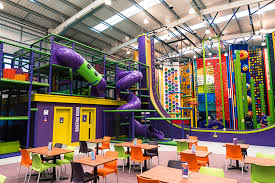Spelling Bee Buddy: Master the Challenge with Expert Tips

Spelling Bee Buddy – Participating in a spelling bee can be a thrilling yet nerve-wracking experience. Whether you’re a first-time competitor or a seasoned participant aiming for the championship, having the right strategies and tips in your arsenal can make all the difference. This guide, “Spelling Bee Buddy: Master the Challenge with Expert Tips,” is designed to help you sharpen your skills, build confidence, and shine in your next competition.
Understanding the Spelling Bee
A spelling bee is more than just a test of your vocabulary; it’s a competition that demands focus, precision, and a knack for pattern recognition. Contestants are tasked with spelling words aloud, often under time constraints, while judges assess their accuracy. Success requires mastering not only individual words but also the rules and nuances of language.
Benefits of Participating in Spelling Bees
Spelling bees are not just about winning trophies; they also provide numerous educational and personal benefits:
- Enhanced Vocabulary: You’ll learn new words, their meanings, and correct usage.
- Improved Memory: Memorizing spellings strengthens cognitive functions.
- Confidence Boost: Standing on stage and spelling correctly fosters self-assurance.
- Critical Thinking: Deciphering unfamiliar words develops problem-solving skills.
- Academic Excellence: Enhanced language skills often lead to better performance in school.
Expert Tips to Excel in Spelling Bees
1. Build a Strong Vocabulary Foundation
- Read Extensively: Reading books, newspapers, and magazines exposes you to diverse vocabulary.
- Use Flashcards: Create flashcards with challenging words and their meanings.
- Learn Word Roots: Understanding Latin and Greek roots can help deduce the spelling of unfamiliar words.
2. Practice Regularly
- Spelling Drills: Practice spelling words aloud, both easy and complex.
- Mock Competitions: Simulate real spelling bee conditions at home.
- Group Study: Collaborate with friends or peers for interactive learning.
3. Master Phonetics and Pronunciations
- Learn how different letters and combinations sound in various contexts.
- Familiarize yourself with phonetic symbols to recognize word sounds.
4. Develop Mnemonics and Memory Aids
- Create mental associations for difficult spellings.
- Use rhymes or acronyms to memorize tricky words.
5. Study Word Patterns and Exceptions
- Focus on common prefixes, suffixes, and spelling rules.
- Pay attention to words that don’t follow standard rules, such as “weird” or “seize.”
6. Leverage Technology
- Use spelling bee apps or online tools to practice.
- Watch YouTube videos of past competitions to observe strategies.
7. Manage Time Effectively
- Allocate specific time slots for spelling practice.
- During the competition, use your time wisely to think before answering.
Tips for Competition Day
- Stay Calm and Focused
- Practice deep breathing techniques to manage anxiety.
- Concentrate on the word given and avoid distractions.
- Ask for Clarifications
- Don’t hesitate to ask the pronouncer to repeat the word, provide its definition, or use it in a sentence.
- Visualize the Word
- Picture the word in your mind or write it on your palm to visualize its spelling.
- Take Your Time
- Think through the spelling carefully before answering. It’s better to take a moment than to rush and make a mistake.
- Trust Your Instincts
- If you’re unsure, trust your gut. Often, your first instinct is correct.
FAQs About Spelling Bees
Q1. How can I start preparing for a spelling bee?
Begin by reading widely, creating a word list, and practicing daily. Focus on understanding the etymology and rules of spelling.
Q2. What are some reliable resources for learning new words?
Dictionaries like Merriam-Webster and Oxford English Dictionary, vocabulary-building apps, and educational websites are excellent tools.
Q3. How do I overcome stage fright during a competition?
Practice in front of an audience, such as friends or family. Visualization and relaxation techniques can also help manage nerves.
Q4. What if I don’t know the word given during the competition?
Use your knowledge of roots, prefixes, and suffixes to deduce the spelling. Requesting the word’s origin or example sentence can provide valuable clues.
Q5. Can spelling bees improve my overall academic performance?
Yes! The skills gained in spelling bees, like improved vocabulary and critical thinking, contribute to better writing, reading, and comprehension.
Why Having a Spelling Bee Buddy Matters
A “Spelling Bee Buddy” can be your partner in this journey. Whether it’s a friend, teacher, or mentor, having someone to practice with and exchange tips can significantly enhance your preparation. Here’s how a buddy can help:
- Accountability: Regular check-ins ensure consistent practice.
- Motivation: Encouragement keeps you focused and positive.
- Feedback: Constructive criticism helps identify areas for improvement.
Conclusion
Mastering a spelling bee is no easy feat, but with dedication, strategic preparation, and the support of a spelling bee buddy, you can elevate your performance and achieve your goals. Remember, the key is consistency and a willingness to learn from every experience. With these expert tips, you’ll not only excel in competitions but also build lifelong skills that extend beyond the stage.
Happy spelling, and may you conquer the next challenge with confidence!



